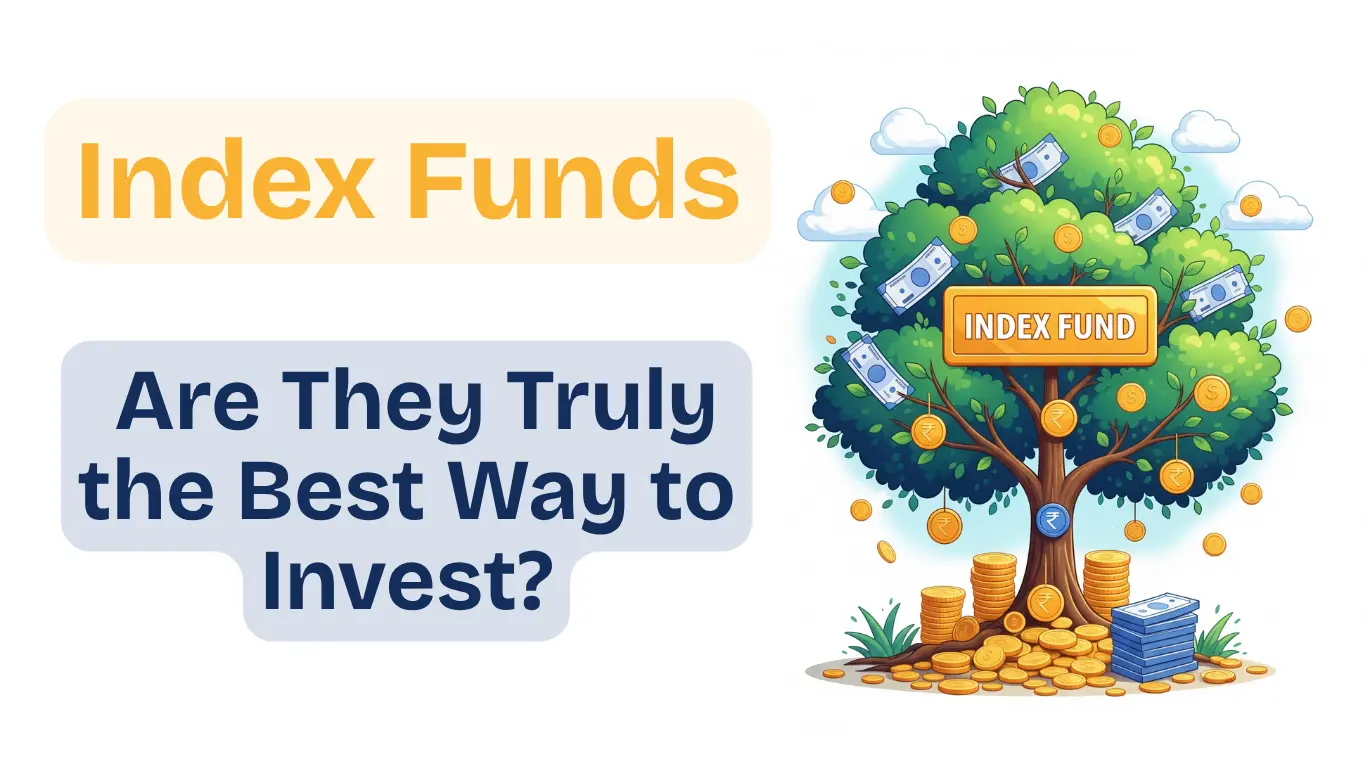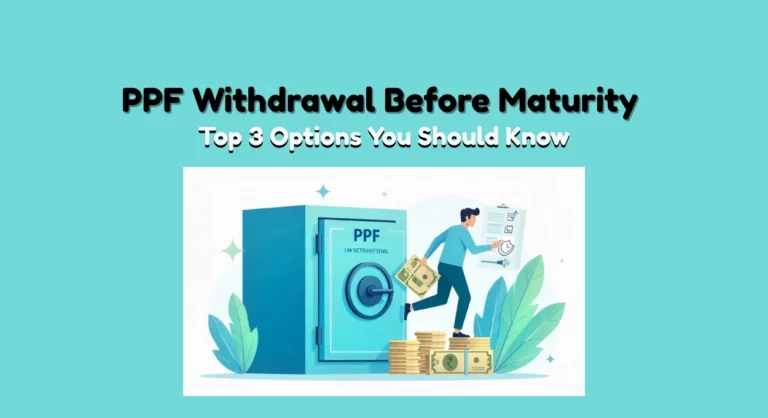Index Investing: The Smartest Way to Build Wealth Without the Stress
Ever dream of investing your money without all the constant stress? You know, no endless worrying about picking the “right” stocks, frantically checking market charts, or stressing over every piece of financial news? Sounds pretty amazing, doesn’t it? Well, that’s exactly what index investing brings to the table – it’s a simple, affordable, and surprisingly powerful way to grow your money steadily over time.
But is it actually the best strategy for you? Let’s really dig into what makes index investing shine, and where it might fall a little short, so you can make a super informed decision for your own financial journey.
Let’s get started!
So, What Exactly Is Index Investing?
Think of index investing as the “set it and forget it” approach to the stock market. Instead of trying to be a stock-picking wizard, you simply put your money into special funds that mirror a specific market index. What’s an index? It’s basically a basket of top companies, like the Nifty 50 here in India, or the S&P 500 in the US.
When you invest in an index fund, you’re not trying to “beat” the market; you’re simply trying to match its overall performance. So, if the Nifty 50 goes up by 10%, your Nifty 50 index fund aims to go up by roughly 10% too!
How it Works (It’s simpler than you think!)
- No Stock-Picking Stress: You don’t have to spend hours analysing individual companies or trying to predict the next big winner. The fund does that by simply owning what the index owns.
- Market-Matching Returns: Your investment grows right along with the overall market. If the economy is booming, your money rides that wave.
- Lower Costs: This is a huge perk! Since there aren’t expensive fund managers constantly trying to pick stocks (they just follow the index), the fees are super low. More money stays in your pocket, invested!
💡 Quick Example: If you pop your money into a Nifty 50 index fund, it’s like you automatically own tiny pieces of India’s top 50 companies – all without the headache of buying each one separately!
Also Read :- https://ipofront.in/index-fund-selection-india-2025/
Why Index Investing Can Be a Real Game-Changer for You
There are some seriously compelling reasons why so many smart investors swear by index funds:
1. It’s the Easiest Way to Invest (Hands-Free!)
Forget complicated jargon, trying to time the market perfectly, or spending weekends researching stocks. Index investing is wonderfully simple. You invest in an index fund, and then you just let it do its thing.
- Perfect for:
- Beginners who want a super easy, hands-off approach to getting started.
- Busy professionals who simply don’t have hours to spare for stock research.
- Long-term investors who believe in the power of steady, consistent market growth over years.
💡 Why it matters: You get to sidestep all that stress and emotional decision-making that can often mess with active investing. It’s investing without the drama!
2. You Save a Ton on Fees
Now, this is where it gets really good. Traditional funds, called “actively managed funds,” charge higher fees because their managers are constantly trying to pick winning stocks and beat the market. But guess what? Studies consistently show that most of these active managers fail to beat the market over the long run.
- Cost Check:
- Actively managed funds often charge anywhere from 1% to 2% (or even more!) in annual fees.
- Index funds, on the other hand, typically charge a tiny 0.05% to 0.50%.
💡 Why it matters: Those lower fees mean more of your money actually stays invested and working for you, leading to significantly higher returns in your pocket over time. It’s like finding free money!
3. You Get Awesome Market-Matching Returns (No Chasing Required!)
Lots of investors dream of “beating the market.” It sounds exciting! But the reality is, most professional investors, even with all their resources, fail to consistently beat the market after factoring in fees. Index funds, however, guarantee you market performance – you’ll always get what the market delivers.
- Real-World Returns:
- The S&P 500 (a big US index) has given an average annual return of around 10% over the last 50 years.
- The Nifty 50 (India’s top index) has grown at about 12% every year on average over the last 20 years.
💡 Why it matters: Instead of chasing risky stock picks that might crash and burn, you can simply let the powerful engine of the overall market work for you and enjoy its consistent growth.
4. You Avoid the Headache of Picking the Wrong Stocks
Even the pros make mistakes. It’s tough to pick individual winners! With index investing, you basically own a piece of the entire market (or a very large chunk of it), so you don’t have to sweat about picking individual “losers” that drag your portfolio down.
- Consider this:
- If you invest in a Nifty 500 index fund, you’re actually owning tiny bits of 500 different companies spread across many sectors.
- So, if a few companies struggle, it’s usually balanced out by many others that are doing well.
💡 Why it matters: You spread out your risk automatically while still benefiting from the market’s overall upward trend. Much less stress!
Also Read :- https://ipofront.in/gold-etf-vs-gold-mutual-fund/
Okay, But What Are the Downsides of Index Investing?
No investment strategy is 100% perfect for everyone. Here are a few things to keep in mind about index investing:
1. You’ll Never “Beat” the Market
Since index funds simply track the market, by definition, they will never outperform it. If you’re hoping for those rare, super-high returns that come from picking the next Amazon or Tesla before anyone else, index investing won’t give you that.
- Example: A really lucky (and well-researched!) small-cap stock might shoot up 300% in five years. An index fund tracking a broad market might only grow 50-60% in that same period.
💡 Why it matters: If your goal is to hit those huge, rapid gains, index investing might feel a bit too slow for your aggressive ambitions.
2. You Can’t Dodge Market Crashes
When the overall market takes a nosedive, your index funds will fall too. There’s no magic shield protecting them from widespread downturns.
- Example: During the big market crash in 2008, the S&P 500 index dropped by 37%, and investors in S&P 500 index funds saw their money shrink right along with everyone else.
- An active fund manager might try to sell off risky assets and move to safer investments before a big crash (though even they often struggle to time it perfectly).
💡 Why it matters: Index funds are great for long-term growth, but they don’t protect you from short-term market downturns. You need to be okay with seeing your portfolio value drop sometimes.
3. You Have No Say in What Stocks They Hold
Index funds are like robots; they blindly follow the rules of the index. This means they’ll hold certain stocks just because the index does, even if those companies are struggling.
- Example: If a major company in the Nifty 50 starts having big problems, a Nifty 50 index fund will still hold its shares until the index formally decides to kick that company out (which can take a while).
- Active fund managers, on the other hand, have the freedom to sell “bad” stocks immediately and buy “better” ones as they see fit.
💡 Why it matters: You can’t personally remove underperforming stocks from an index fund portfolio. You’re riding with whatever the index holds.
Also Read :- https://ipofront.in/earn-more-interest-fixed-deposit-india/
Who Should Absolutely Consider Index Funds?
Index investing is a perfect fit for a certain type of investor:
- 📌 Beginners: If you’re new to investing, it’s an incredibly straightforward and effective way to start without needing deep market knowledge.
- 📌 Long-Term Investors: It truly shines over 10+ years (the longer, the better!) as compounding works its magic and short-term volatility gets smoothed out.
- 📌 Passive Investors: If you don’t want to spend time daily tracking the market or doing research, this is for you. Set it, forget it, and let it grow.
- 📌 Cost-Conscious Investors: If you’re someone who loves keeping fees low to maximize your actual returns, index funds are your go-to.
💡 Hot Tip: If you’re feeling a bit more adventurous and want a shot at potentially higher returns, many investors successfully mix index funds with a few actively managed funds. This gives you a balanced approach!
Final Thoughts: Is Index Investing Your Smart Move?
At the end of the day, index investing is simple, super cost-effective, and incredibly reliable for long-term wealth building. Yes, it has a few limitations, like not being able to beat the market or protect you from crashes.
But if your main goal is to get solid, market-matching returns with minimal effort and stress, then index funds are absolutely perfect for you. If you’re chasing those rare, very high returns, you might need to explore active investing or individual stock picking (which comes with higher risk!).
- ✔ Best for long-term, hands-off investors.
- ✔ Offers low costs, great diversification, and stress-free growth.
- ✔ Consistent returns, even if it means no “outperformance.”
💡 The ultimate investment strategy? For many, it’s a smart blend! A mix of reliable index funds for your core portfolio combined with a few carefully chosen active funds for that extra growth potential can be a truly balanced and effective approach to building wealth. 🚀
Useful Links :-
Know The limitations of Index Funds | Mutual Funds Sahi Hai
What is an index fund and how does it work? | Fidelity
Index Funds: A Complete Guide
The Best Index Funds | Morningstar
Index Funds – Meaning, Why and How You Should Invest?







